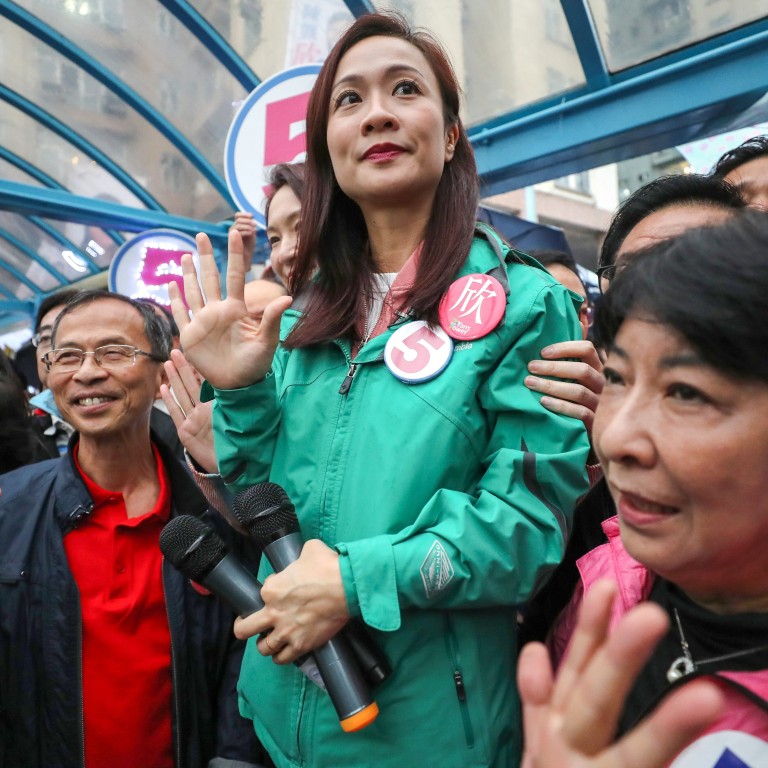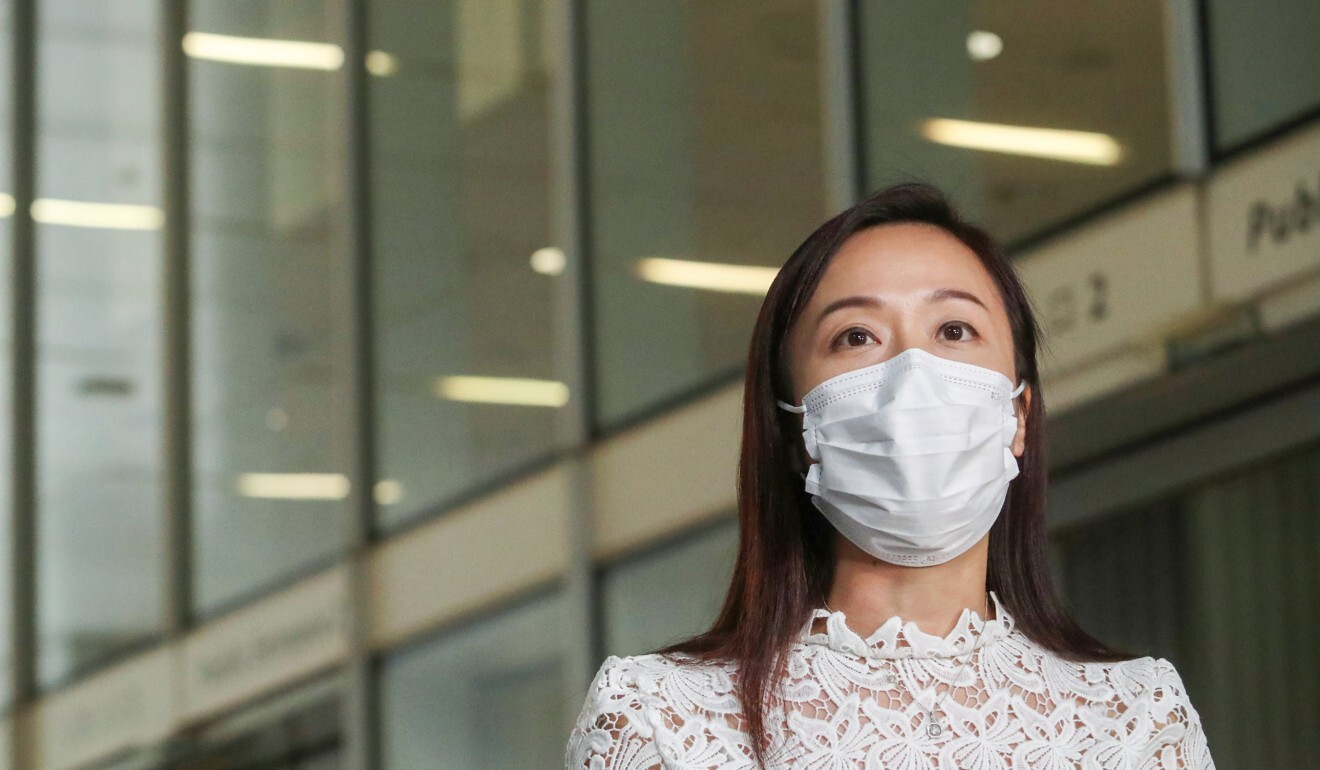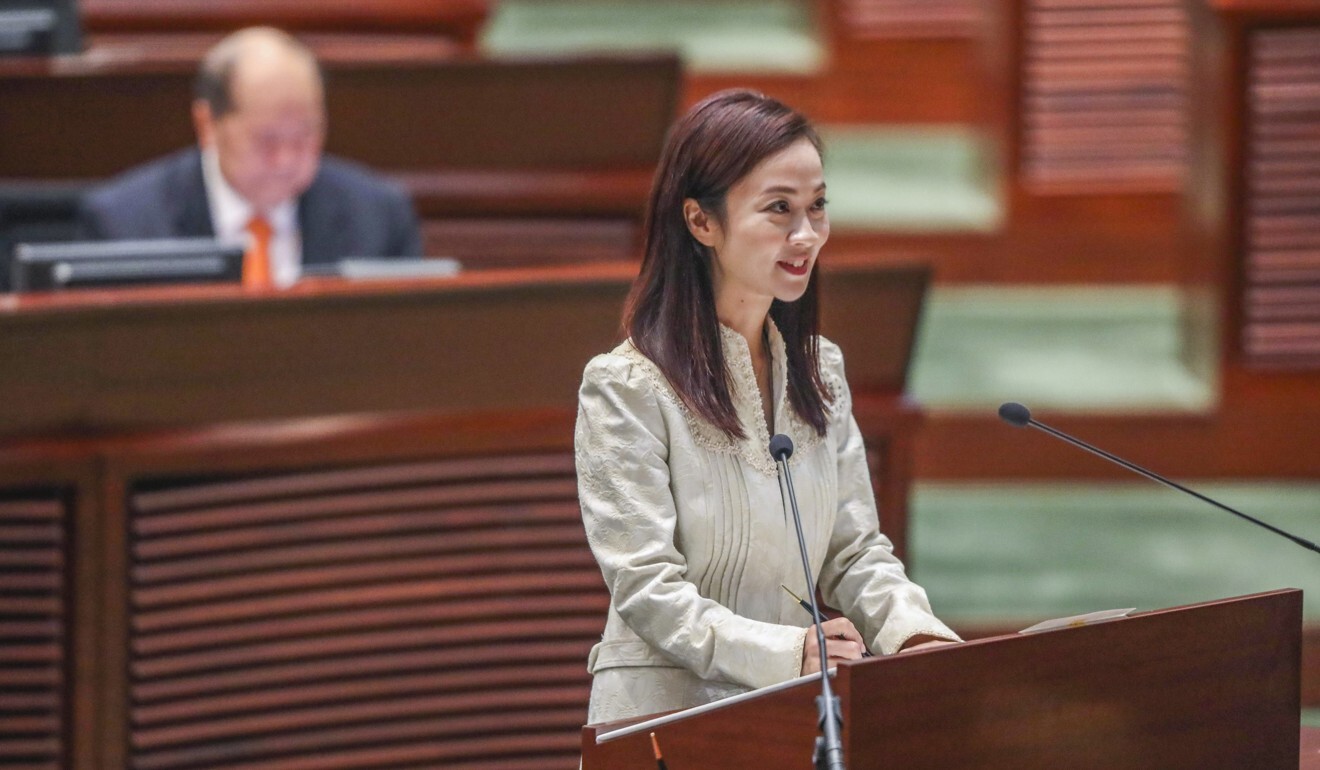
Are Hong Kong voters paying for electoral officials’ mistakes? Three court rulings have yet to settle key issues, experts say
- Legco oustings have once again raised questions about the broad powers wielded by the electoral officials who vet candidates
- But even three judicial rulings on recent cases have not resolved central issues, according to observers
Pro-establishment lawmaker Chan Hoi-yan’s ousting from the Legislative Council has put the spotlight once again on Hong Kong’s electoral system, the officials who act as gatekeepers to the polls and where exactly voters’ interests figure into it all.
Chan became the third lawmaker – and the first from the pro-establishment camp – elected in a 2018 by-election to lose her seat following petitions to the courts by disqualified candidates. The others ousted were pan-democratic politicians Au Nok-hin and Gary Fan Kwok-wai, who were unseated last December.
In all three cases, the courts found that electoral officials had erred in disqualifying candidates from the elections by failing to give them the opportunity to defend themselves against charges made by the officials themselves.

A disappointed Chan, a former journalist turned politician, said after the Court of Final Appeal decided on September 18 that she could not appeal against a lower court’s ruling to unseat her that the outcome was bad for voters.
“They went to the polling station to vote, entrusting me and other legislators to be their voice in the legislative chamber,” she said. “This is really unfair to their vote.”
The top court is scheduled to hand down its reasoning on Chan’s case in writing on Monday afternoon.
Although Chan, Au and Fan had not done anything wrong themselves, they lost their seats when the courts found they had been “unduly elected” because electoral officers had made mistakes in disqualifying other candidates, thereby tainting the elections.
Pro-establishment politician’s Legislative Council ousting upheld in Court of Final Appeal
Their cases have raised questions about the power of electoral officials, the civil servants whose duties include vetting would-be candidates and deciding who can contest a given poll.
The cases also show the risks involved when disqualified candidates challenge the electoral process. Both Au and Fan lost their seats after successful challenges by disqualified candidates from their own pan-democratic camps.
Political scientist Ma Ngok, from Chinese University, noted that there had been an rising trend since 2016 of authorities disqualifying candidates holding what they perceived as a pro-independence stance, but the consequences went beyond the affected lawmakers.
“Due to the disqualifications, voters also miss out on the chance to vote for the candidate they desire,” he said.
Winning elections and losing seats
The court actions followed a series of controversial events sparked by the disqualification of six newly-elected opposition lawmakers from the city’s sixth Legco term soon after it began in 2016.
Their disqualifications resulted in a series of by-elections in 2018. More controversy followed when several opposition candidates were barred from contesting after electoral officers decided their political positions were incompatible with Hong Kong’s mini-constitution, the Basic Law.
The officers accused the candidates of holding a separatist stance, which opposition activists widely dismissed as a form of political censorship.
The disqualified candidates then turned to the courts to complain the electoral officers had treated them unfairly by not giving them a chance to respond to the charges against them before barring them from standing.
With Chan, Au and Fan losing their seats in the wake of the challenges, however, the more than 427,000 voters who chose them saw their votes go down the drain.

“It was the government which made a mistake, yet it was the voters who ended up being punished,” said Fan, who won the New Territories East seat.
He said the cases took too long to go through the courts, and also questioned the current election petition system, in which the inevitable outcome is that the whole poll is deemed void if a complaint is substantiated.
That requirement, set in laws governing elections for the Legco as well as the district councils, allows judges to overturn an election result if irregularities are found.
Ironically, Au lost his seat after winning as a “Plan B” candidate replacing his pan-democratic colleague Agnes Chow Ting, who was not allowed to run. Though Chow had agreed to Au’s backup candidacy, it was her court challenge that ultimately unseated him.
Election ban on Hong Kong pro-democracy activist Agnes Chow overturned
During Au’s hearing before the Court of Final Appeal against a lower court’s ruling to strip him of his seat, his lawyers argued that there ought to be an option to let an elected lawmaker retain his seat if the party challenging the election process shared the same political beliefs.
But the lawyers’ suggestion that Au should keep his seat since he and Chow were from the same side drew a rebuke from Chief Justice Geoffery Ma Tao-li, who said: “This is not a game, this is a serious legal procedure.”
The judges did not accept that disqualified candidates might want to prove that electoral officials had erred, while still arguing the poll’s winners ought to keep their seats if they were from the same camp.
Fan, meanwhile, won his by-election under similar circumstances, after fellow opposition activist Ventus Lau Wing-hong was disqualified.
Both Au and Fan ultimately lost their appeals and their seats.
Lawmakers lose seats after court upholds ruling invalidating their elections to Legco
Ousted pro-establishment lawmaker Chan’s case was different, as she won in Kowloon West constituency after opposition lawmaker Lau Siu-lai was barred from contesting the by-election.
Lau had in fact won the seat in 2016, but was among the six lawmakers disqualified over their oath-taking. The electoral officer who stopped her from contesting the by-election two years later felt she had not genuinely changed her previous position of advocating self-determination for Hong Kong, which some officials have conflated with a pro-independence stance.
Lau succeeded in persuading the courts to overturn her election ban, effectively unseating the poll’s winner, Chan.
Student activist and opposition politician Joshua Wong Chi-fung decided to try a different approach after he was barred from contesting last November’s district council elections.
He also had a standby candidate waiting to replace him in case he was disqualified. So fellow activist Kevin Lam Ho-por stepped in with his blessing, and went on to win in the South Horizons West constituency of the Southern district .
To avoid the risk of Lam being unseated, Wong opted to file a judicial challenge, rather than take the usual election petition route.
The opposition camp considered it an innovative move as Wong, if successful, could avoid the unwanted outcome of triggering a new election.
But his bid was dismissed by the Court of First Instance on Wednesday, with the presiding judge ruling that an election petition should be the only avenue to lodge election-related complaints.
Hong Kong activist Joshua Wong loses legal bid to overturn district council elections ban
Looking back, Lau, the activist who challenged Fan, explained he was well aware of the possible consequences of unseating Fan by lodging his challenge.
“But the whole thing [of my disqualification] was unjust, and any injustice has to be challenged. That was our primary thinking,” he said, stressing his case was aimed at the electoral officer, not at Fan.
He recalled exploring all the legal possibilities, but found that an election petition was the only option, adding that Wong’s case proved his decision.
“There was a problem with the law. Why should voters be responsible for the electoral officers’ mistakes?” Lau asked, calling for a review of the arrangement.
‘Making the same mistakes again’
Hong Kong’s Legco elections were due to be held this year, but have been postponed to 2021, with the government citing the Covid-19 pandemic.
Despite Chan, Au and Fan’s oustings, the government has made it clear that a by-election would not be held before the general election, and at least Fan and Chan have said it was too early to decide whether they will run in 2021.
Going forward, Fan said he felt electoral officers should refrain from disqualifying candidates, but Chan disagreed.

She said if there was one thing the courts had made clear in handling election-related disputes over the past four years, it was that electoral officers do have the power to vet candidates.
“They have also spelled out what electoral officers should do to comply with the courts’ decisions,” she said.
The courts have ruled that electoral officers have the power to check candidates’ application forms to ensure that they do not contain errors, and to check candidates against the requirements of the Basic Law. The officers are also empowered to disqualify candidates when they have “cogent, clear and compelling” evidence to do so, a judge ruled in 2018.
However, in other cases, including Chan, Fan and Au’s, the courts have made clear that electoral officers who intend to disqualify a candidate should give the individual a reasonable opportunity to respond and explain themselves.
Chan said: “The government should think about how to streamline the electoral officers’ work to avoid making the same mistakes again.”
Masterstroke or mess? Legco extension by Beijing stumps both sides
But barrister Anson Wong Yu-yat said the three court decisions still left questions unanswered, as the three disqualified candidates had lodged their challenges on very narrow grounds.
“All these cases concerned the applicants arguing they were not given ample opportunities to respond,” he said.
“Presumably, [the electoral officers] will not make these mistakes again. But challenges could be still lodged on other grounds, such as the officer making a factual error or failing to get the legal points concerning the Basic Law right.”
Ma, the political scientist, said the court might have tightened up some loose ends on technical issues, but the matter of where to draw the line, including on what political beliefs should be kept at bay, remained something the courts had not ruled on, and was still purely at the discretion of the authorities, he said.

